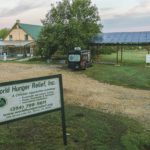Story by Skylla Mumana
Photos by Brooke Giacin
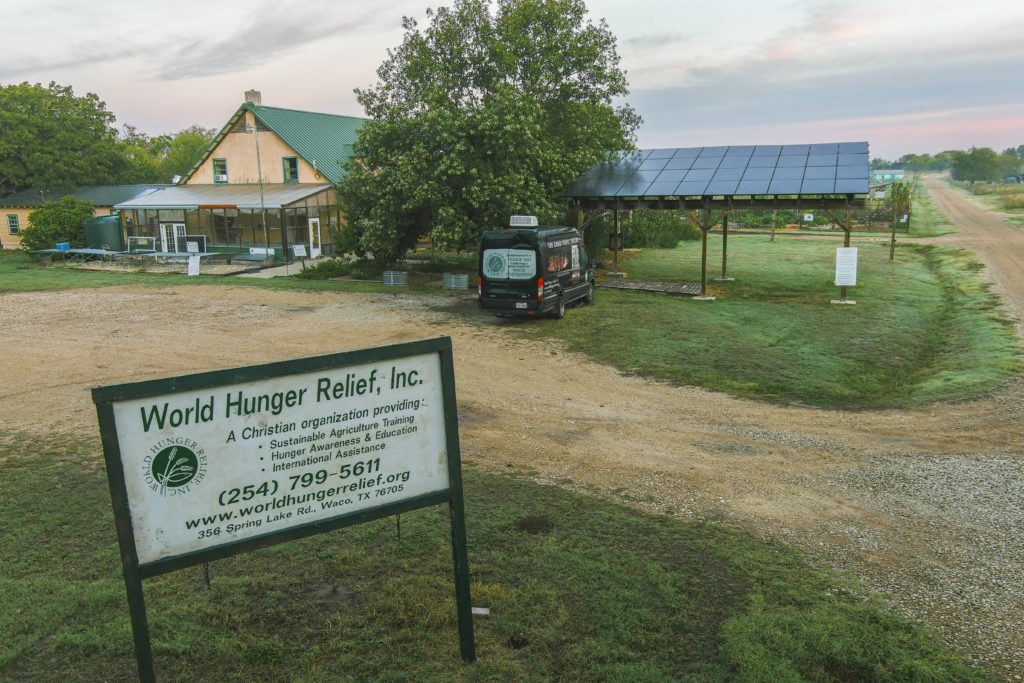
As food insecurity is a global issue, one farm is leading the charge to help fight it. World Hunger Relief Farm is an educational farm that aims to alleviate hunger through sustainable agriculture. Located in Waco, the farm is one of many around the world that are part of a global organization more widely known as World Hunger Relief Inc. It is a Christian organization that aims to help improve sustainability practices in different communities across the globe and eradicate food injustice. Not just in Waco, but in Haiti and Liberia, the organization has operated since 1976.
Baylor alumnus Sky Toney works as the director of education at the farm in Waco. With a master’s degree in environmental science, Toney runs the day-to-day operations of the farm, along with other workers and interns. Everything is grown seasonally because different plants function in different spaces and weather. As they phase out their spring and summer veggies, such as okra and eggplant, they begin to seed vegetables more suited for the cold, such as carrots, turnips and potatoes. As a “beyond-organic” farm, they don’t use any chemical pesticides, herbicides or fertilizer, in order to promote ethical farming and crop growing. They also use wood chips to aid soil health and mitigate the temperature extremes here in Texas.

As educational director, Sky Toney meets with the students as they come and talks them through some of the programs World Hunger Relief participates in and shows them around.
Locally, World Hunger Relief Farm collaborates with various organizations in the community to create and partake in innovative solutions to big issues regarding food. For example, Waco Family Medicine is a health care center that provides medical, dental and behavioral health care to underserved residents in McLennan County, regardless of insurance. With about 61,000 annual patients, Toney said, the doctors reported about half of their patients come in due to diet-related health issues. To combat this, the Produce Prescription Program was introduced around 2016. Through this program, both Waco Family Medicine and World Hunger Relief Farm provide fresh produce to families in the community.
“It’s sad that in our community there are people who don’t have access to good, healthy, nutritious food for a variety of reasons,” Toney said. “That’s an injustice.”
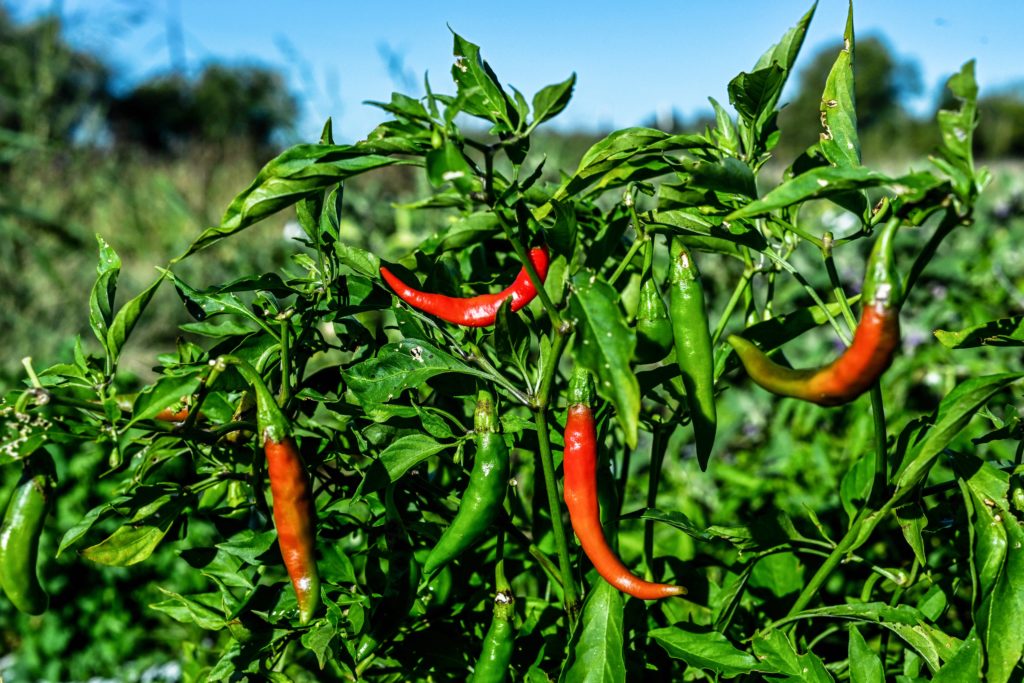
This past season the farm grew an abundance of peppers that came in various sizes, shapes and colors. As bright and vibrant as they are, their flavor will be used in different meals wherever they get sent. From planting the peppers, watching them grow, harvesting them and using them in meals, World Hunger Relief gets the job done when it comes to sustainability.
Alongside helping families, World Hunger Relief Farm is very active in the Waco Downtown Farmers Market, where they sell fresh produce to the Waco community and accept a variety of payments, including food assistance programs like the Supplemental Nutrition Assistance Program (SNAP) and the Special Supplemental Nutrition Program for Women, Infants and Children (WIC). World Hunger Relief Farm also has a compost pickup program, which partners with local restaurants and grocers, such as East Market, Waco Cha and Mamaka, to pick up leftover food scraps and waste. Instead of it going to the landfill, they use it to fertilize their fields or to feed their farm animals. Through this, they’re hoping to help impact food waste in the Waco community. According to a study done by ReFED, a nonprofit focused on ending food waste across the U.S., around 54.2 million food waste tons were generated across all sectors in the U.S. in 2019. These sectors include farming land, when produce goes bad, in retail, residential and food service areas where food may get thrown out and manufacturing areas when food gets tossed out from packaging. Even in a more local setting, reports of food waste inside McLennan County are just as shocking.
“Generally, in our landfills here in McLennan County, between 25-30% of our landfill is compostable,” Toney said. “It doesn’t decompose in a healthy way. It sits there and rots and produces methane gas, which is a greenhouse gas more potent than CO2.”
Even with high percentages of food waste, there are still communities in the U.S. that suffer from food insecurity. As defined by the USDA, food insecurity is “the lack of access, at times, to enough food for an active, healthy life.” As of 2020, the child food insecurity rate was recorded at 22.4% in McLennan County, higher than both the state (13%) and national averages (11.8%) of hunger for all ages.

From the crops on the farm, various meals with different taste palettes come to fruition. Whether it’s the main course or a side dish, the farm’s product stands out.
Matt Burchett, Student Activities senior director at Baylor, is one of five members that sit on the board of directors at World Hunger Relief Farm. He believes that hunger, while having many different forms, ultimately comes down to access or lack thereof.
“I think hunger, and the way we address it, is really about access to healthy food,” Burchett said. “Access includes not only the ability to have it, but also how you prepare it and how we ensure we can create sustainability around it.”
It’s important to note that hunger does not have a consistent look. Baylor Collaborative on Hunger and Poverty has found that hunger can take form in the college student struggling to get by, or the elementary schooler who survives off of their school lunch as their only meal of the day. While there are similar organizations to World Hunger Relief Farm to help, such as Meals on Wheels, Mission Waco, The Fridge at Baylor, and again the Baylor Collaborative on Hunger and Poverty (BCHP), there are still people with food insecurities.
Even as WHRF provides food for others, the longevity of our world is a key factor to Toney’s work. To be more specific, sustainability is one of the core principles of the farm. Earth.Org, a nonprofit environmental news and data platform, says that according to their data, the U.S. is ranked 197th in global sustainability. Despite having numerous practices that they implement at the farm, Toney notes that sustainability starts at home. This can be done through multiple avenues, allowing for anyone and everyone to participate.
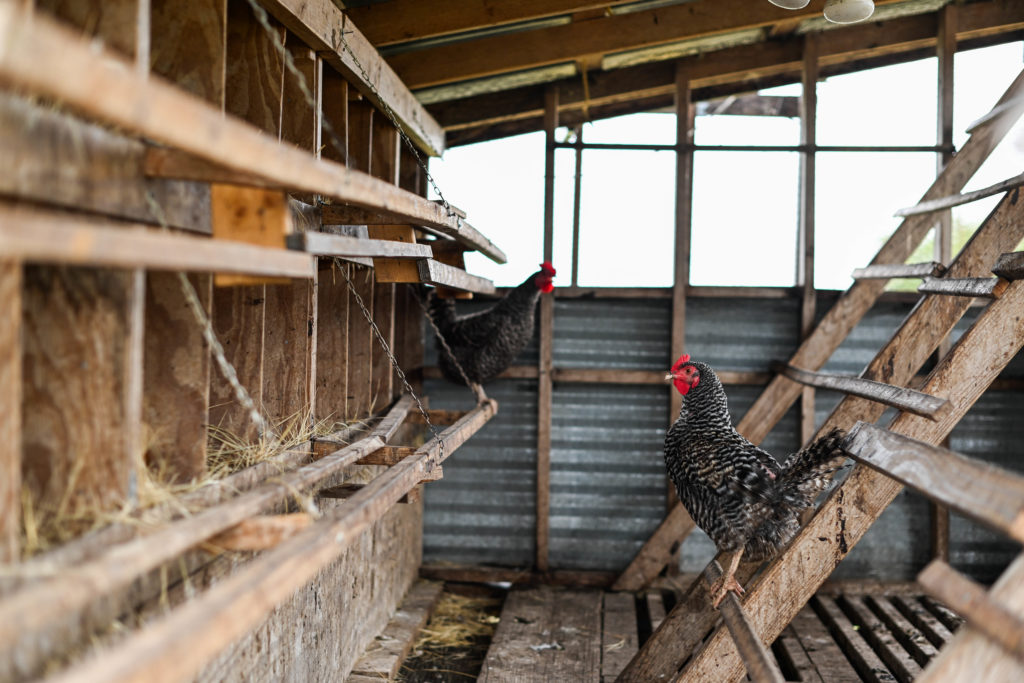
While also having large fields of crops, the farm houses many farm animals. In their coop, the chickens have room to roam about and go outside to stretch their legs.
Purchasing ethically sourced meats and vegetables can not only ensure that food is grown holistically, but that it retains its nutritional value. Drive-by compost stands, such as the few at World Hunger Relief Farm, allow for anyone in the McLennan County area to drop off their stray food scraps and other compostable items — and they can do the work for you. Other common ways people can maintain sustainability are creating grocery lists, following meal plans and getting creative with leftovers.
“As individuals, our choices matter collectively,” Toney said.
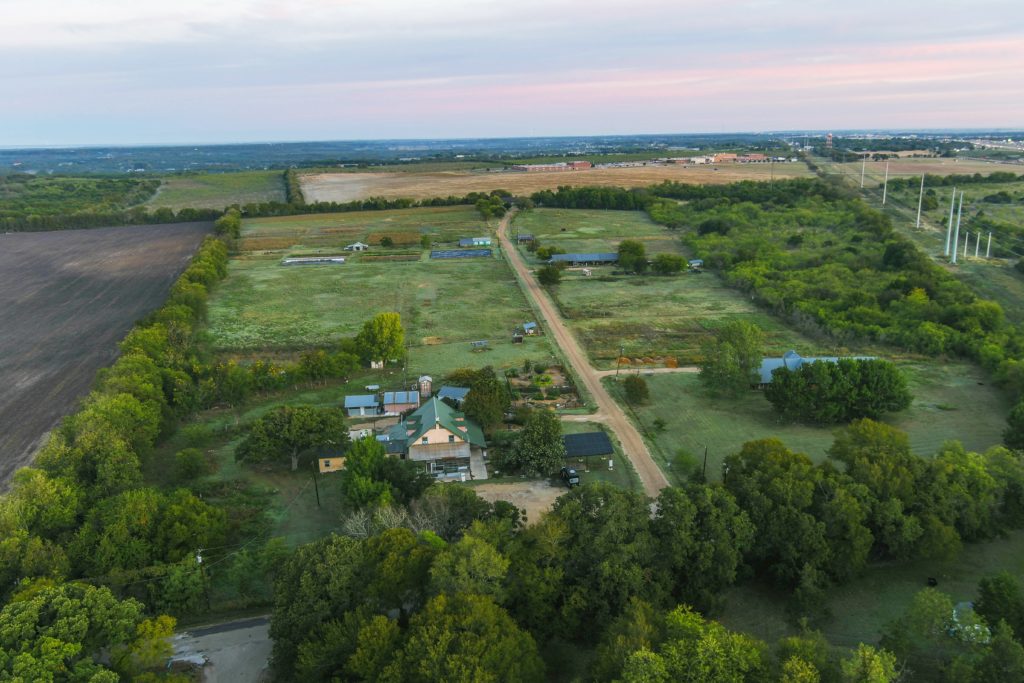
As the farm has grown in both crop selections and its impact in the community, they work to keep sustainability at the forefront of their business.
As a Christian organization, the farm’s theology also plays a key role in the day-to-day management of the farm. How the workers interact with the farm animals and how they care for the land, all tie back to the farm’s Christian mandate to love both nature and neighbor. By taking cues from nature and tracking its recurring patterns, such as seasons and rainfall, they are able to integrate those patterns into their current agricultural practices. Doing such means being good stewards of the environment, which, according to Toney, is what the farm strives for.
“God’s really brilliant in how he designed nature to function,” he said. “We look at the way God designed the world and we try to mimic that in our agricultural practices.”
While carefully crafted public policy, full of awareness that looks to both local ramifications and not just global, may be key, Toney notes that it may also take more than this to tackle climate change. No one solution or method is going to solve it. It’s going to take everybody working together, from politicians and world leaders to the neighbor next door.
“No matter where you’re at in society, there’s a role for everyone to play,” Toney said. “It really does take everybody in their specific realm being educated and understanding what’s going on.”

